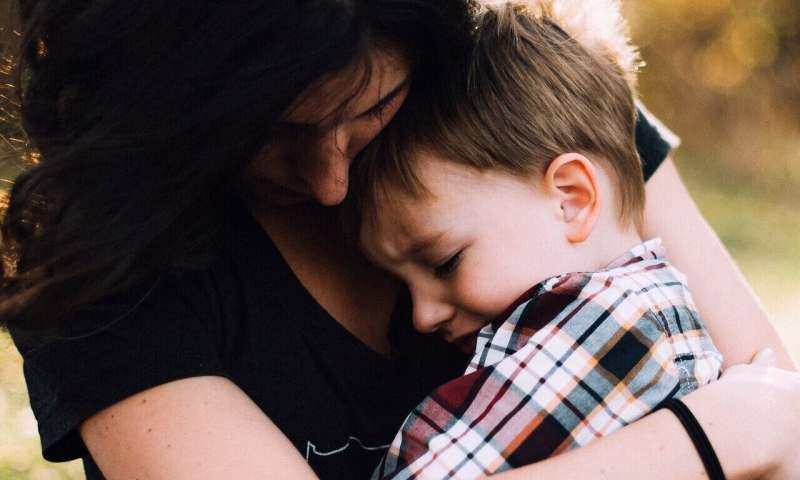Parent depression linked to reduced empathy toward kids, increasing risk for adverse outcomes

Parents with greater depression symptoms report experiencing less empathy—even toward their own children, according to a new Vanderbilt report published in PLOS ONE. This phenomenon could lead to significant long-term negative impacts for these children, the researchers say.
"Feeling understood and accepted is important for everyone, but especially in the context of the parent–child relationship," said senior author Kathryn L. Humphreys, assistant professor of psychology at Vanderbilt Peabody College of education and human development. "Research studies find that when children don't receive empathic responses from caregivers, they tend to have a wide variety of negative outcomes, including elevated physiological responses to stress, increased risk for psychiatric disorders, especially depression, and decreased empathy toward others."
The findings may be particularly pertinent during the current COVID-19 outbreak, a time when depression and anxiety are on the rise as parents struggle to balance health and financial concerns with isolation, working from home and caring for (and educating) their young children.
"Our findings may help to explain why parents with depression are more likely to engage in negative parenting behaviors, such as withdrawal or hostility, and reduced positive parenting behaviors, like sensitivity, engagement and warmth," said lead author Virginia Salo, a postdoctoral fellow at Vanderbilt. "Depression doesn't just affect the person who is experiencing it."
Humphreys says that parents experiencing depression are more likely to struggle with fatigue and irritability, making even routine family-centric activities like reading together, preparing meals and playing games, more difficult. These activities are important because they can build emotional connection, boost learning and enhance language skills.
"A parent's difficulty identifying and connecting with a child's emotions is particularly concerning during these turbulent times when children's worlds are being disrupted and parents are the primary source for providing a sense of safety," Humphreys said.
Across the world population, more than 300 million people are estimated to experience a major depressive episode in their lifetime. Among adults in the United States alone the lifetime prevalence of major depressive disorder is approximately 21 percent.








 个人中心
个人中心 我的培训班
我的培训班 反馈
反馈












Comments
Something to say?
Log in or Sign up for free